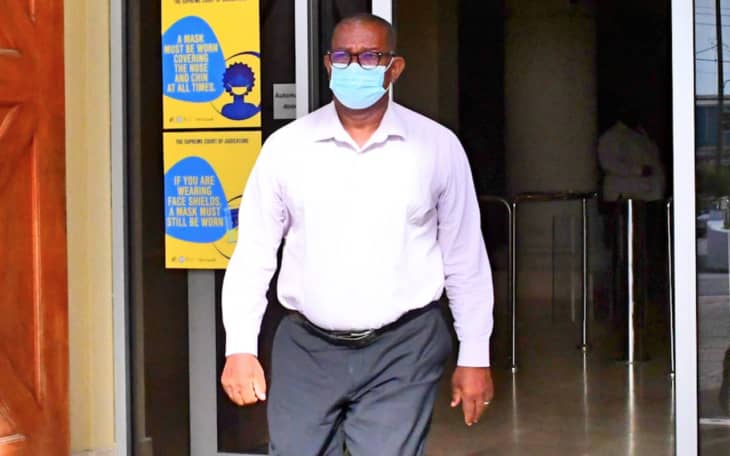
Yesterday, the Caribbean Court of Justice (CCJ) refused to grant permission to Alex Tasker from Barbados to appeal an order that he be extradited to the United States of America.
On 8 September 2021, Mr Tasker was committed by a Magistrate in Barbados to surrender to the authorities of the United States of America, to face charges in the United States for money laundering and conspiracy to launder money.
After the committal order was made, the Magistrate, in accordance with section 19 of the Extradition Act of Barbados, advised Mr Tasker of his right to apply for leave to appeal or for a writ of habeas corpus within 15 days of his committal.
However, on that same date, his attorney appealed the committal order by Notice of Appeal to the Court of Appeal, pursuant to the process for appealing a Magistrate’s decision set out in the Magistrate’s Courts Act.
His attorney subsequently filed a Notice of Application seeking leave to appeal the Magistrate’s decision pursuant to the Extradition Act. By the time that the application was filed, the stipulated time of 15 days for doing so had expired.
On appeal, the Court of Appeal considered the preliminary issues with respect to Mr Tasker’s attempts to appeal the order of committal and dismissed the application for leave to appeal on 27 April 2023.
Mr Tasker then sought permission to appeal this decision to the CCJ. He also applied for interim orders staying the order for committal and an order restraining the Barbados authorities from taking steps to surrender him to US authorities, pending the determination of his application and the appeal.
In a judgment authored by Mr Justice Saunders, with whom Messrs. Justices Wit and Anderson concurred, the CCJ held that the Court of Appeal was entitled to dismiss the application for leave to appeal.
When examining the provisions of the Magistrate’s Courts Act and the Extradition Act, the Bench opined that the process to appeal an order of committal was explicit in the latter Act, since it was the specific legislation dedicated to the management of extradition proceedings and it contained a specific procedure for appeal in such proceedings.
Additionally, the argument that the Court of Appeal had the power to enlarge the time for filing the application for leave to appeal under the Extradition Act was problematic, given that the Act contained no explicit provision for extending the time limits for filing such an application.
As a result, the CCJ determined that there was no arguable case advanced by Mr Tasker which justified the grant of special leave to appeal the Court of Appeal’s decision.
On these bases, the application for special leave was dismissed.
The application was determined by the Honourable Mr Justice Adrian Saunders, President, and the Honourable Justices Jacob Wit and Winston Anderson.
Andrew Pilgrim KC, Douglas Mendes SC and Clay Hackett represented the Applicant, and Oliver Thomas, Senior State Counsel and Alliston Seale, Deputy Director of Public Prosecutions, represented the Office of the Director of Public Prosecutions.
The full judgment of the Court is available on the CCJ’s website at ccj.org.
CLICK HERE TO JOIN OUR WHATSAPP GROUP
CLICK HERE TO JOIN OUR WHATSAPP GROUP
CLICK HERE TO JOIN OUR WHATSAPP GROUP
CLICK HERE TO JOIN OUR WHATSAPP GROUP
CLICK HERE TO JOIN OUR WHATSAPP GROUP
CLICK HERE TO JOIN OUR WHATSAPP GROUP
Advertise with the mоѕt vіѕіtеd nеwѕ ѕіtе іn Antigua!
We offer fully customizable and flexible digital marketing packages.
Contact us at [email protected]

















When is Uncle Jack coming North?
Comments are closed.